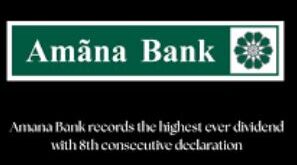(Originally published in The Sunday Leader, 28 August 2011)
 In mid 2008 the world plunged into an economic recession with devastating consequences throughout the world. The crisis apparently started in the USA. It was a man-made crisis and it came apparently without a prior warning. Surprisingly, even the economists world over, who are engaged in the day to day affairs of global finances could not foresee the event. In fact, even a few months before the turmoil the IMF was said to be predicting an optimistic picture of the world economy.
In mid 2008 the world plunged into an economic recession with devastating consequences throughout the world. The crisis apparently started in the USA. It was a man-made crisis and it came apparently without a prior warning. Surprisingly, even the economists world over, who are engaged in the day to day affairs of global finances could not foresee the event. In fact, even a few months before the turmoil the IMF was said to be predicting an optimistic picture of the world economy.
Not all countries, however, were affected to the same extent by the downturn. The most affected were in fact the industrialised economies like the USA and the Euro Zone. The irony is that these are also the countries that hold a monopoly of the world’s leading economists. In fact, practically all of the world’s Nobel Prize winners in economics since the early 1960s hail from the USA. In contrast the so-called BRICKS countries which constitute the emerging economies were the least affected by the events.
The causes that led to the crisis have not yet been fully identified. In the USA the blame was placed squarely on greedy CEOs, a corrupt Wall Street, short – sighted mortgage banks, incompetent banking systems, lack of regulatory measures, speculation and more. But then, none of these is new, they have always been part and parcel of the country’s financial system for decades. In the boom days none of them were taken as serious issues anyway. Interestingly also, up to now no criminal charges have been placed on any of the Corporate Officers of the institutions allegedly involved in triggering the turmoil.
When the causes are not well defined, as in the present situation it becomes a lot harder to offer meaningful solutions to the problem. This was evident by the desperate actions taken by various governments to contain the recession. Billions of tax dollars were spent on bailouts to the broken manufacturing sector and banks. Then there were the stimulus packages where huge sums of public money were poured into infrastructure projects, education and health, these in addition to the already existing low corporate taxes. Despite all these efforts the US economy still remains disoriented, as are the political leaders and the economists. Some European countries are already broke and at the moment the USA is struggling to avoid a debt induced fiscal collapse. The unemployment rate in the USA is currently around 9 to 10 percent (official figures) and among the youth it is as high as 25 percent, and it looks like these numbers have come to stay for a long time.
These ongoing events seem to suggest that the economics profession is out of step with the fast moving global developments. Not only did the economists fail to detect in advance the onset of the crisis, they also seem to have run out of ideas to remedy the situation. It appears that the predictive models used by economists are inadequate and do not have the capabilities to make reliable forecasts. The theories of unemployment so amply discussed by economists do not seem to work in reality. Present day economics tend to rely heavily on mathematics, especially statistics and probability theory. Statistical models are basically empirical relationships or at the best semi-empirical. The accuracy of these models depends largely on the ability to precisely identify and quantify the input variables and the interactions between them. This is not a straightforward task considering the complexity and dynamics of today’s globalised economy. It is not surprising, therefore, as is often seen, to obtain economic projections associated with high marginal errors and low confidence levels. These uncertainties may easily lead to erroneous conclusions. This perhaps explains why there is so much divergence of opinion between economists or financial experts for that matter on a given economic issue.
Some financial experts in the USA have firmly declared that the crisis has now stabilised itself and that the economy is on track to slow recovery, while at the same time there are other analysts who are even predicting a double dip for the country’s economy. Conflicting statements of this nature tend to confuse the public and moreover, damage the credibility of the economics profession. The public conception though is that the crisis is far from over yet. Some economists even offer mind boggling (to the layperson) correlations to explain certain observed trends as did a Chief Economist of a leading US bank recently. This economist was convinced that the current high unemployment rates in the USA are a result of the tornadoes in the US mid-west, the tsunami in Japan and the sluggish recovery of the auto sector.
Policymakers often rely on formal economic studies for backup information on various social issues. Laypersons too can have economic sense on most matters that affect day to day life. Their input is also crucial to any decision making process. In a statement in January this year the UN had reported of an imminent hike in food prices in the world. This is nothing new to house wives who have been complaining of this problem long before the report was released. It appears that even the IMF has failed to keep pace with the economic changes in the world. The IMF is essentially a money lender. It gives bailout loans to failing economies, usually the developing countries. IMF loans usually come with a predictable set of terms and conditions (strings) attached: privatisation, devaluation of local currency, austerity measures and more, all of which go to help the rich donor members leaving behind very little to the loan receiver.
Economic experts must realise that they are treading on uncertain territory with unreliable instruments in hand. It is important that they identify their limitations and not overstep the boundaries. Otherwise there is the danger that economic projections may turn into mere crystal gazing.
Post Disclaimer | Support Us
Support Us
The sailanmuslim.com web site entirely supported by individual donors and well wishers. If you regularly visit this site and wish to show your appreciation, or if you wish to see further development of sailanmuslim.com, please donate us
IMPORTANT : All content hosted on sailanmuslim.com is solely for non-commercial purposes and with the permission of original copyright holders. Any other use of the hosted content, such as for financial gain, requires express approval from the copyright owners.
 Sri lanka Muslims Web Portal Sri Lanka Muslims News Center
Sri lanka Muslims Web Portal Sri Lanka Muslims News Center
 Donate
Donate


